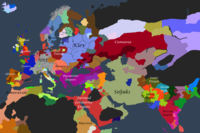Part 7: Years of Isolation and Peace
Chapter 6 – Years of Isolation and Peace – 1155 to 1164The story of the Middle Ages is, as one might expect, a tale of both rising and falling kingdoms, of plucky and ancient dynasties alike, of ambitious men ready to take on the world and astute women who play them like puppetmasters. A recurring theme, and one that plays out again and again behind closed curtains, but no single family epitomise it as much as the old and powerful Fatimid dynasty might.
The Fatimids had once reigned supreme, but they were very nearly overthrown after series of rebellions pushed the Fatimid Caliph all the way back to Cairo, and for a brief few years, it seemed as though Shia hegemony had come to an end. That, of course, was before the young and ambitious commander Yahya deposed his cousin and usurped the Caliphate, before embarking on a remarkable campaign in an attempt to piece together his fathers' empire, quickly earning a reputation for his brutal and unforgiving demeanour.
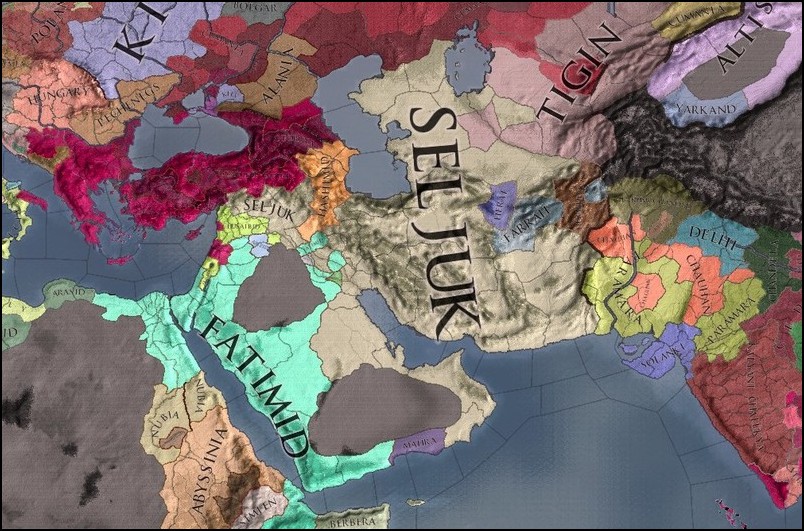
After crushing his rivals, Yahya began consolidating and executing his political rivals. After just two years, Caliph Yahya not only managed to drag the Shia Fatimids from the precipice of ruin and back to the forefront of Middle Eastern politics, but he managed to push his frontiers outward and absorb the Hejaz and Damascus into his growing empire.
And an empire it was, once Yahya proclaimed himself Malk al-Maluk, or King of Kings, in an attempt to gain equal leverage with his chief rival, Basileus Konstantinos.
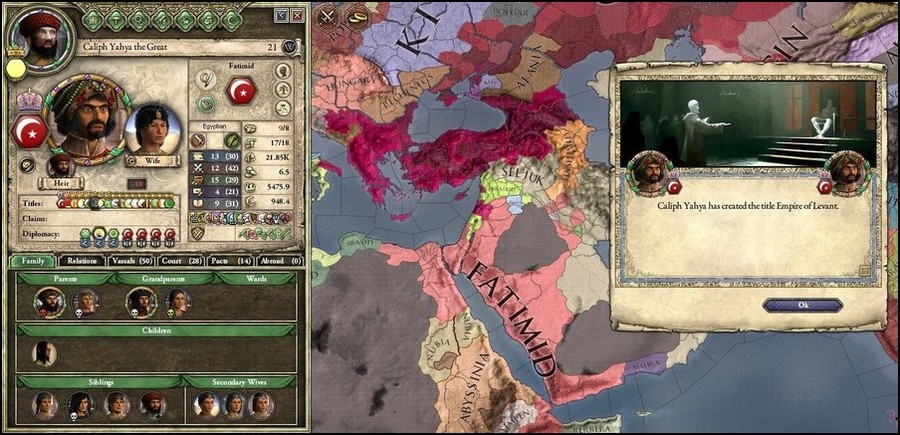
Speaking of the Basileus, the East Roman Empire was not exactly at its height. Despite defeating a wide array of foreign enemies on the field of battle, the Empire couldn’t go even a year without succumbing to infighting, a recurring plight amongst the so-called Romans.
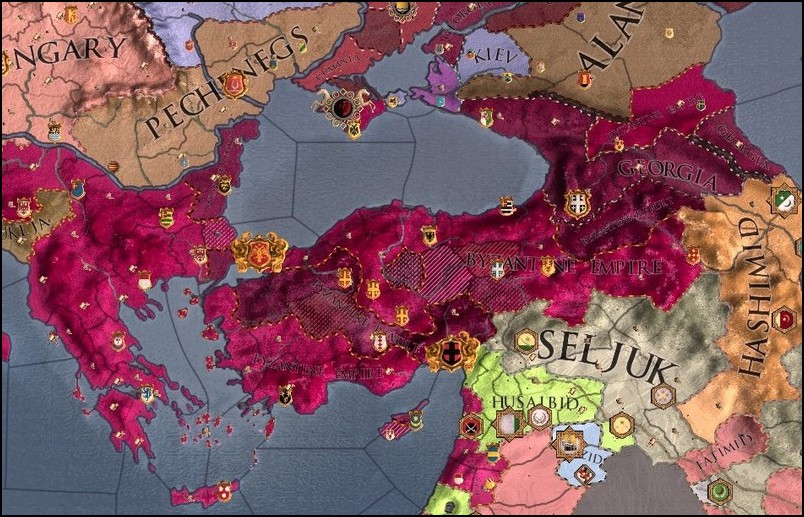
With Islam on the rise and the Romans once again fighting one other, a unique opportunity quickly made itself apparent. The Fatimid caliph got bogged down in a war against the Christian Abyssinians, but the Sunni Caliph Bahir, backed by his overlord Sultan Hamid Seljuq, decided that the time to test Roman waters had arrived once again.
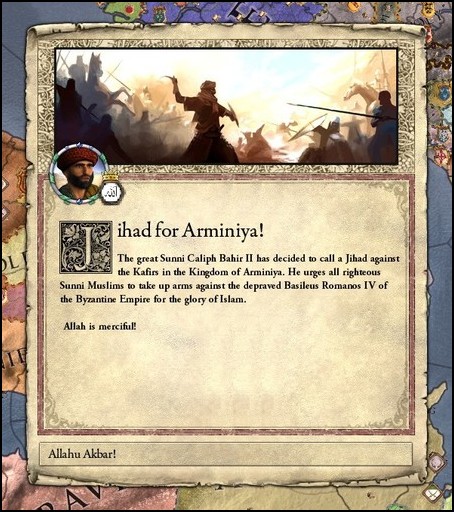
Further west, Europe was in turmoil.
The Italian Holy Roman Emperor had pushed into France with fifty thousand troops late in 1156, defeating the French forces over a series of stunning battles, which climaxed with the death of the French King Henry just outside Paris. The Emperor died not long after the war’s conclusion, however, and his chosen successor was nowhere near as popular as he had been, sparking rebellions against his rule.
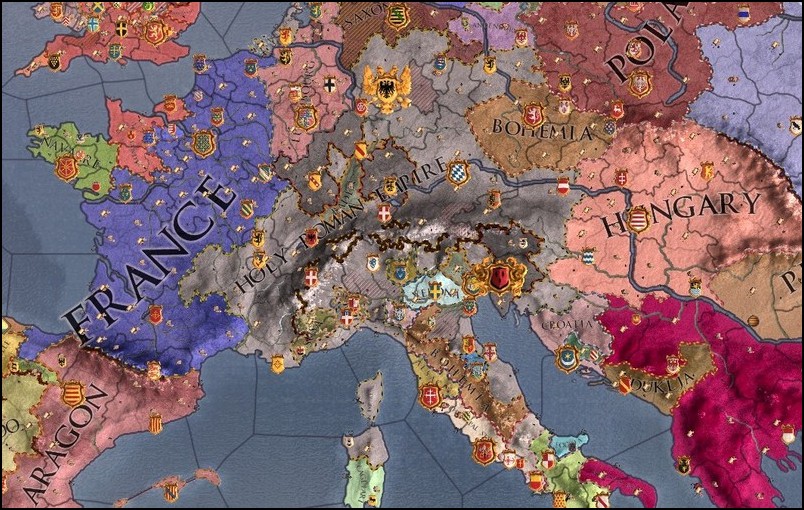
In France, meanwhile, the humiliating losses in the war resulted in widespread discontent and anger. Many of the more powerful dukes had begun to believe that the Capets were simply unable to defend French borders, sparking a civil war that only ended once rebel forces marched into Paris three years later. The Capets were long gone, of course, fleeing the moment the odds turned against them.
A new king was crowned, with the rebel leader Duke Bernard digging up old familial ties with the Karlings in an attempt to legitimise his claims, though of course nobody argued with the man who’d sacrificed an eye and his reputation for the throne.
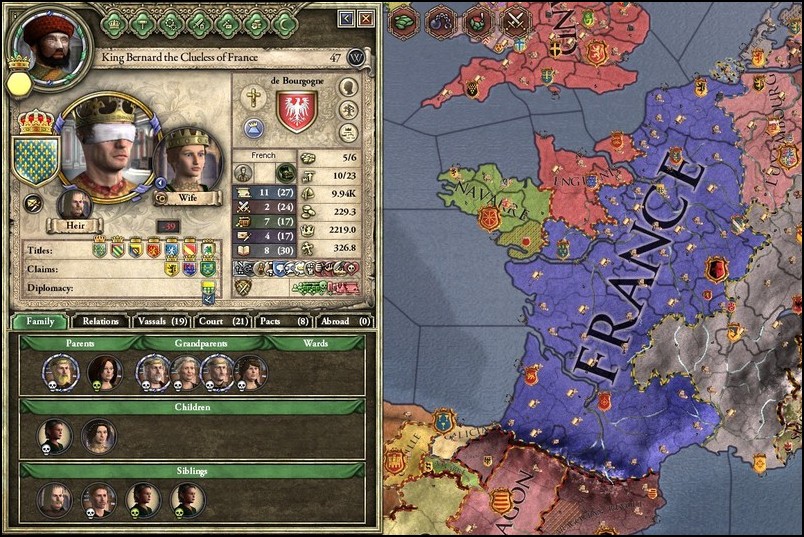
The daughter and heir of King Henry, Adelinde, was secreted away from Paris and taken to her last loyal holdings by sea. Her last loyal holdings, however, were not exactly… in France. Not at all, in fact.
Adelinde crowned herself as Queen of Castille, and swore to one day re-take her French inheritance, though nobody took the vows of a disgraced and overthrown queen all that seriously.
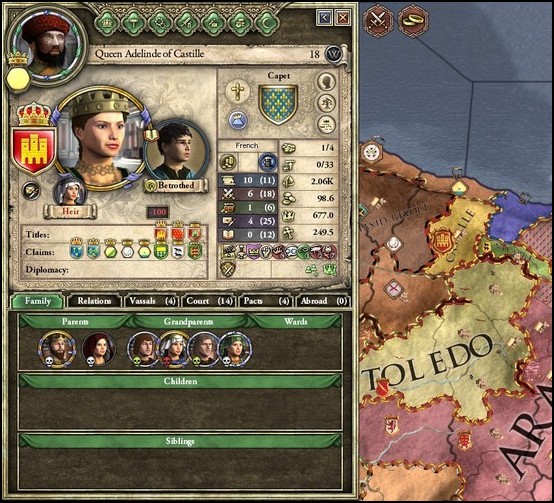
Finally, however, we return to Iberia proper. After defeating the two great powers of the peninsula – the Aftasids and Aragon – Emir Masud returned to Cádiz almost a legend in the flesh. Despite enduring a difficult childhood and a painful adulthood, Masud had proven himself a brilliant and more than capable Emir, far more than his predecessors had been.
Allah, however, seemed to be set on giving the Emir a hard time. After returning from the war with the Aftasids, he found his court in uproar. The plotting and scheming between his wives had escalated beyond control and resulted in the death of his favourite son and presumed heir. Masud, in shock upon hearing the news, almost collapsed and died right there.
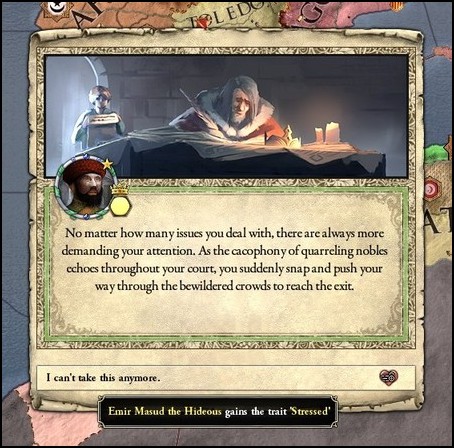
The way Emir Masud dealt with the tragedy, however, speaks volumes about his character. He did isolate himself and retreat from public scrutiny, but rather than turning to alcohol to ease his pain, as his father and grandfather had done, Masud looked to the heavens to relieve his pain.
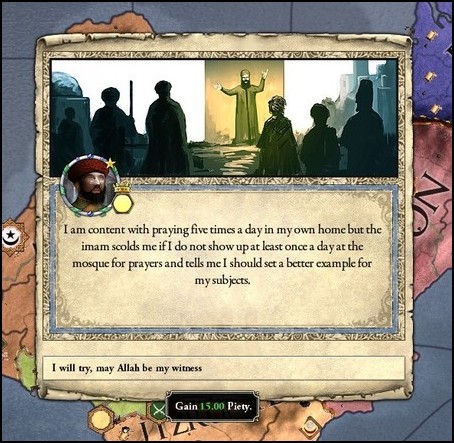
Of course, he ordered the death of several of his wives, but that was just procedure.
From that point onwards, Masud refused to meddle in the affairs of state. He lost interest in accounts and maintaining a stable currency, in stamping out provincial corruption and hereditary honours, in ensuring religious freedom and waging wars of conquest. In fact, the Emir quickly turned from a bright and colourful character to something of a white sheet, spending his days praying or reading his books.
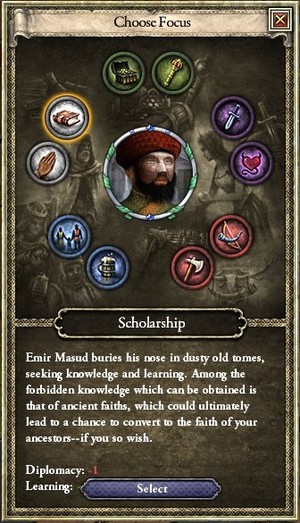
This, unsurprisingly, quickly led to rumours taking root with Cádiz. It was whispered that the Emir was getting too soft, that he had let his favourite harem-women get away with murder, that it was all a farce to escape from his duties. When Masud refused to involve himself in the Jihad for Armenia, these whispers escalated into accusations of cowardice and religious apathy, with many of his vassals publicly denouncing him.
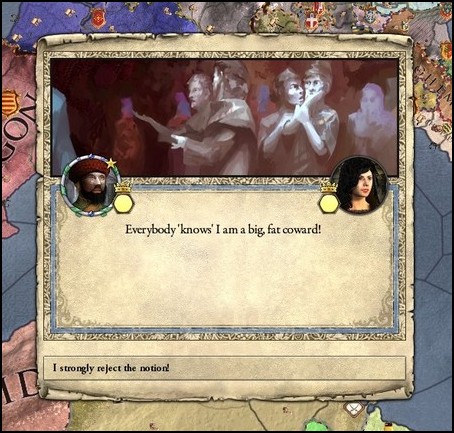
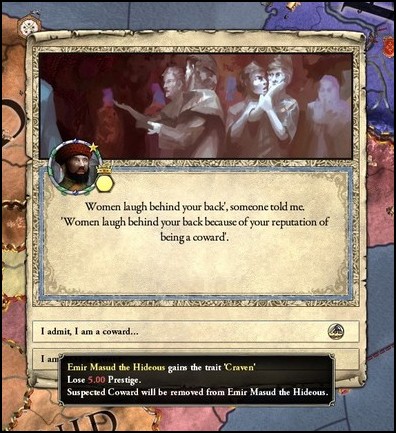
In wake of Masud’s recent disinterest in governance, the Cádizian Council took on greater powers and became the rulers in all but name. They built on the foundations set down by Emir Masud, expanding on his budding road system and organising an emirate-wide messenger system, which would hopefully aid in communication between different armies in times of war.
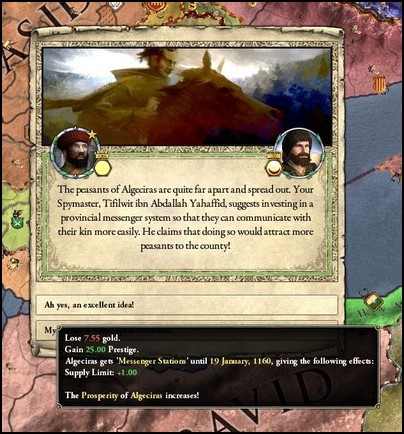
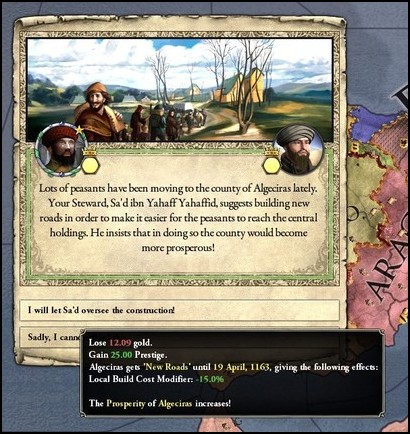
Emir Masud kept himself busy with his libraries, with his appetite for knowledge quickly growing, and he soon found himself interested in far more than just poetry. He invited countless academics from places as far-flung as Constantinople and Cairo in an attempt to stimulate a scholarly atmosphere in Cádiz, hoping to transform Cádiz into the intellectual center of Iberia, or the new Córdoba, as it were.
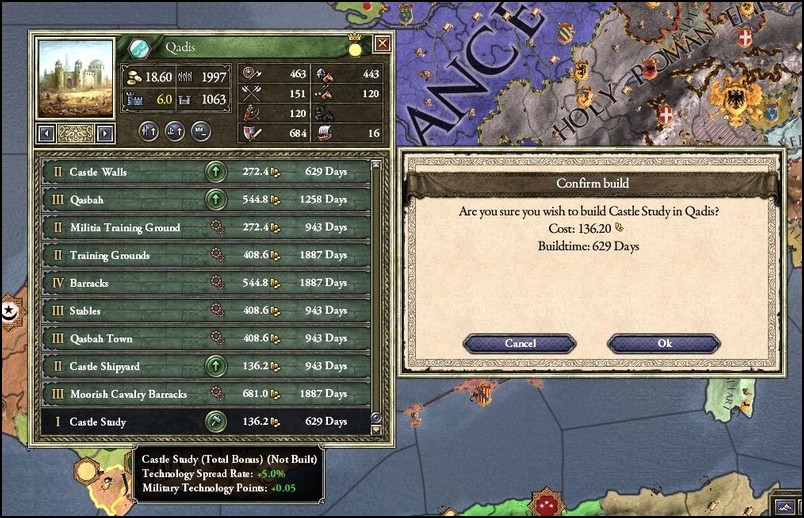
Funds were diverted from the military and to Masud’s ambitious new projects over the following years, angering many in the aristocracy. The Emir was determined to see his vision materialise, however, and his university quickly attracted a host of polymaths and intellectual authorities. Before long, discussion within the so-called ‘House of Wonder’ was brimming, with topics as varied as architecture to astronomy gaining traction.
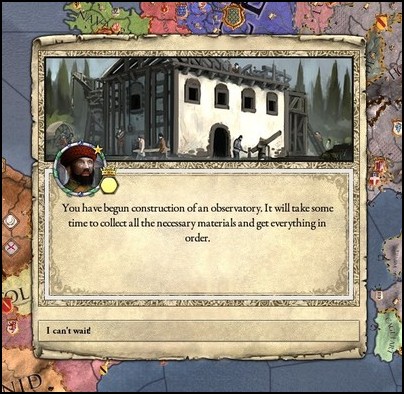
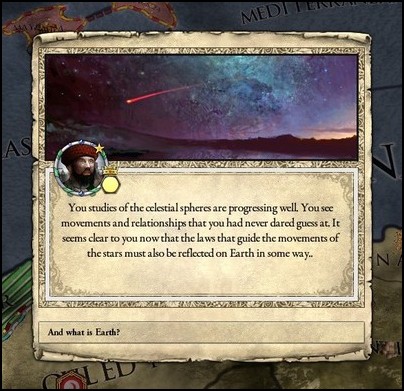
Later that same year, Masud’s secondborn son came of age. He was a brawny and headstrong young man, well-versed in all the necessary histories and traditions, but he was no Admer.
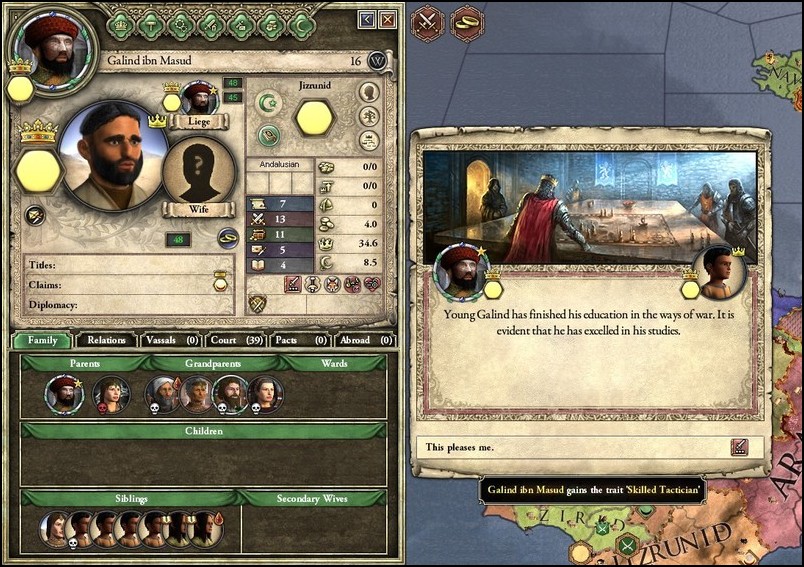
Whilst Emir Masud was busy arguing about the set paths of stars or worrying about the future of his realm, there were major developments further north, in the far-flung isles of Brittania. After being ruled under Norwegians for almost a century, the Anglo-Saxon lords of England rose up in revolt late in 1163, demanding unrestricted independence.
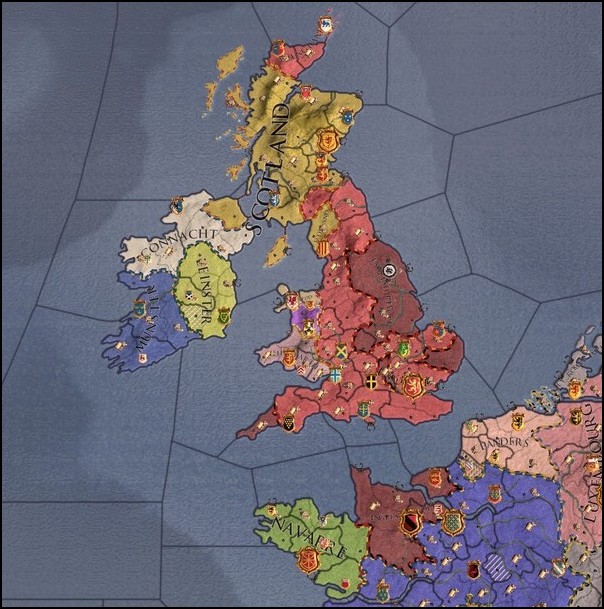
This was the fourth Anglo-Saxon uprising, with all the previous ones having been brutally crushed. This time, however, a mere child sat the throne, making it far easier to outmanoeuvre the feeble-minded generals and finally gain a decisive victory in battle. The nobility quickly fled back to Norway, effectively surrendering their Anglo-Saxon territories.
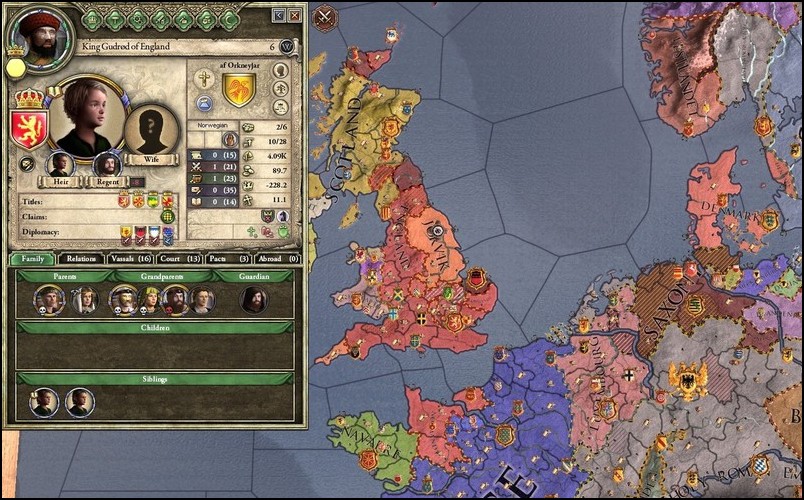
King Gudred, the last Norwegian King of England.
By then, however, the doors had been flung wide open and there was no closing them. Revolt after revolt broke out as thousands of peasants took up arms against their Norwegian lords, driven into fury by a poor harvest and a devastating winter, and led into civil war by the brash but brave Count Leofdeg. With almost no levies to raise, the child-king Gudred was forced to follow his Norwegian vassals and flee London, leaving the rebels to storm the capital and proclaim the end of Norwegian hegemony.
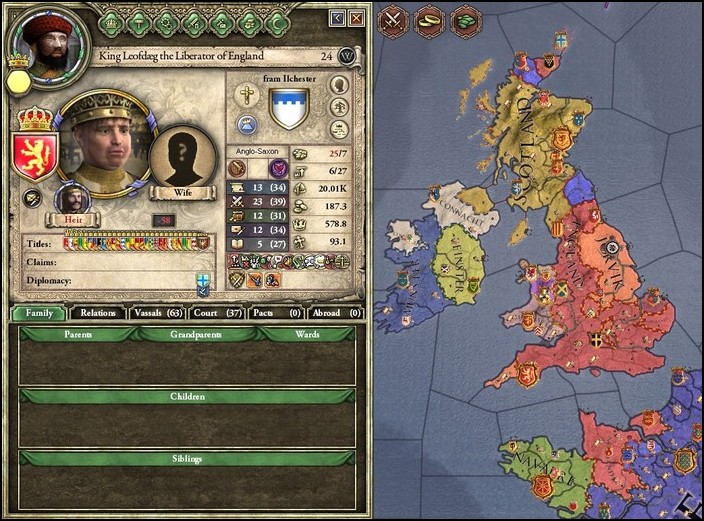
Concurrently, the Jihad for Armenia reached its conclusion early in 1164, with the Roman armies driven back all the way to Constantinople without surrendering. A close battle followed between some 20,000 Turks and 25,000 Byzantines, and after a few hours of thick fighting, the Romans were broken and cut down by the thousand. With blood seeping into the Bosphorus, Basileus Konstantinos was forced to agree to the proposed peace terms, and large tracts of land in Armenia and Anatolia were ceded to a Turkish dynasty.
This is only a temporary peace, however, with the Turks vowing to push ever-forward and one day burn Constantinople to the ground, as Prophet Muhammad had prophesied half a millennium past.
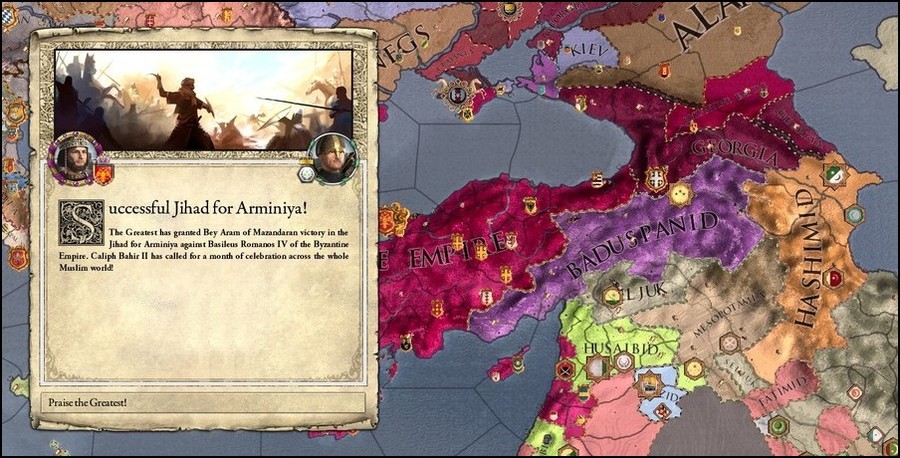
As new kingdoms are born and ambitious men are crowned, however, a particularly humble and spectacularly unfortunate emir passes from this world to the next. After enduring a long and difficult life, Emir Masud died in April of 1164, succeeded by his secondborn and second choice in Galind. His cause of death was determined to be infection, as his face-wounds had never truly healed, and he died as he had lived: in great pain.
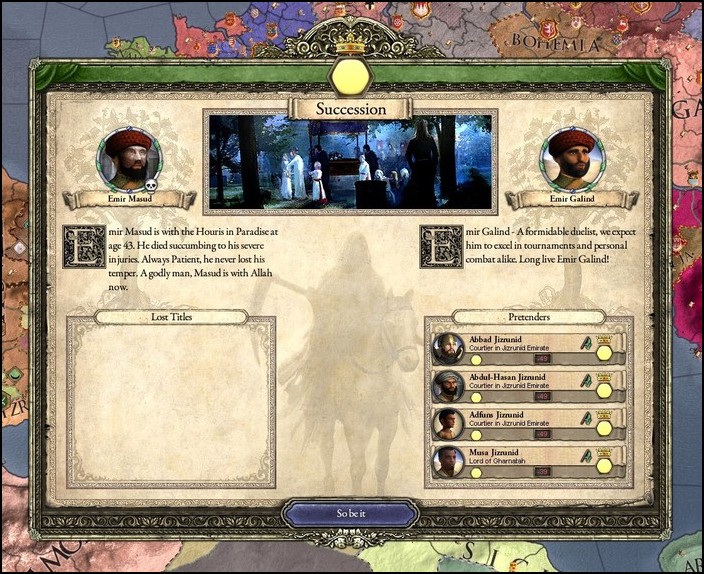
Having inherited a small and weak sheikhdom, Masud had certainly gone on to earn great renown for both himself and his family. He not only defeated two of the more powerful kingdoms on the field of battle, but he had fought to turn his inheritance from a mere principality to a powerful emirate. And more importantly, some would say, his great esteem for scholarly arts and learning led to him establishing the foundation of what would later become the artistic and cultural centre of Iberia.
His achievements and deeds are numerous, overshadowing his horrendous and crippling injuries, and because of that, Emir Masud has come to be seen as the founder of House Jizrunid and the Emirate of Cádiz.
edit: It’s been almost a hundred years since the game started, so have a world map, with most of the major countries who’ve been around for a while listed:
